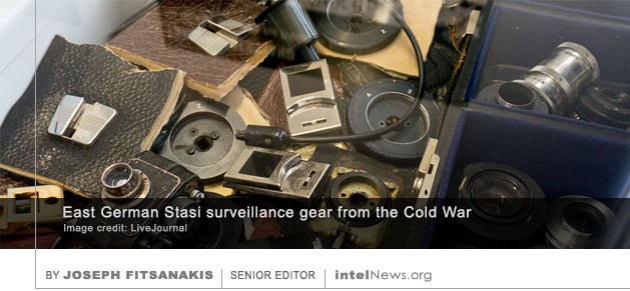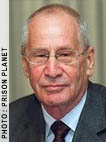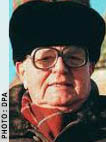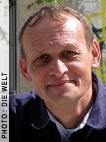East German Stasi spies questioned for evidence on Lockerbie bombing
March 22, 2019 Leave a comment
 Five former officers of East Germany’s State Security Service, known commonly as the Stasi, have been questioned in Berlin over the Lockerbie air disaster at the request of British prosecutors. A total of 270 people died on December 21, 1988, when Pan Am flight 103, flying from Frankfurt to Detroit, exploded in mid-air over the Scottish village of Lockerbie. In 2001, a British court sitting in the Netherlands ruled that the bombing was carried out by Abdelbaset al-Megrahi, former head of security for Libyan Arab Airlines. Al-Megrahi was also believed to have been an officer of Intelligence of the Jamahiriya —Libya’s main intelligence service. He claimed he was innocent of the crime until his death in 2012 from cancer.
Five former officers of East Germany’s State Security Service, known commonly as the Stasi, have been questioned in Berlin over the Lockerbie air disaster at the request of British prosecutors. A total of 270 people died on December 21, 1988, when Pan Am flight 103, flying from Frankfurt to Detroit, exploded in mid-air over the Scottish village of Lockerbie. In 2001, a British court sitting in the Netherlands ruled that the bombing was carried out by Abdelbaset al-Megrahi, former head of security for Libyan Arab Airlines. Al-Megrahi was also believed to have been an officer of Intelligence of the Jamahiriya —Libya’s main intelligence service. He claimed he was innocent of the crime until his death in 2012 from cancer.
But Scotland’s independent public prosecution agency, the Crown Office and Procurator Fiscal Service, has always claimed that several other Libyan intelligence operatives helped Megrahi bring down Pan Am flight 103. Last December, the Crown Office said that it was continuing to pursue a criminal inquiry into several individuals —other than Megrahi— who were “involved in the conspiracy” to bomb Pan Am flight 103. As part of the inquiry, Crown Office prosecutors have interviewed potential suspects and witnesses, including Abdullah Senussi, former head of Libyan intelligence.
On Thursday, the German news agency DPA said that five former officers of the East German Stasi —all of them in their 70s and 80s— had been interviewed in connection to the Lockerbie bombing. The news agency said that the interviews had been conducted by German intelligence officers at the request of Crown Office prosecutors in Britain. Later on Thursday, the Berlin office of the German state prosecutor confirmed that the unnamed five individuals had been interviewed “as witnesses, not as suspects” throughout the past nine months. It gave no further information, saying that “it would be inappropriate to comment on a developing criminal investigation”.
All five former Stasi officers are believed to have provided evidence at the trial in the Netherlands that resulted in Megrahi’s conviction. Among other things, they told the court that the Libyans had contracted a Swiss businessman who manufactured the timer that detonated the Lockerbie bomb. Moreover, the 2014 documentary My Brother’s Bomber, directed by the American filmmaker Ken Dornstein, whose brother died in the Lockerbie bombing, claimed that the Stasi had closely monitored the activities of Libyan intelligence in West Germany in the years leading up to the downing of Pan Am flight 103. Some believe that the Stasi had evidence of a conspiracy by several Libyan intelligence officers to carry out the bombing.
► Author: Joseph Fitsanakis | Date: 22 March 2019 | Permalink
 State-sponsored industrial espionage aimed at stealing foreign technical secrets may boost a country’s technological sector in the short run, but ultimately stifles it, according to the first study on the subject. The study is based on over 150,000 declassified documents belonging to the East German Ministry for State Security, known as Stasi. The now-defunct intelligence agency of communist-era East Germany was known for its extensive networks of informants, which focused intensely on acquiring technical secrets from abroad.
State-sponsored industrial espionage aimed at stealing foreign technical secrets may boost a country’s technological sector in the short run, but ultimately stifles it, according to the first study on the subject. The study is based on over 150,000 declassified documents belonging to the East German Ministry for State Security, known as Stasi. The now-defunct intelligence agency of communist-era East Germany was known for its extensive networks of informants, which focused intensely on acquiring technical secrets from abroad. Werner Stiller, also known as Klaus-Peter Fischer, whose spectacular defection to the West in 1979 inflicted one of the Cold War’s most serious blows to the intelligence agency of East Germany, has died in Hungary. Stiller, 69, is believed to have died on December 20 of last year, but his death was not
Werner Stiller, also known as Klaus-Peter Fischer, whose spectacular defection to the West in 1979 inflicted one of the Cold War’s most serious blows to the intelligence agency of East Germany, has died in Hungary. Stiller, 69, is believed to have died on December 20 of last year, but his death was not  A videotaped lecture by Kim Philby, one of the Cold War’s most recognizable espionage figures, has been unearthed in the archives of the Stasi, the Ministry of State Security of the former East Germany. During the one-hour lecture, filmed in 1981, Philby addresses a select audience of Stasi operations officers and offers them advice on espionage, drawn from his own career. While working as a senior member of British intelligence, Harold Adrian Russell Philby, known as ‘Kim’ to his friends, spied on behalf of the Soviet NKVD and KGB from the early 1930s until 1963, when he secretly defected to the USSR from his home in Beirut, Lebanon. Philby’s defection sent ripples of shock across Western intelligence and is often seen as one of the most dramatic moments of the Cold War.
A videotaped lecture by Kim Philby, one of the Cold War’s most recognizable espionage figures, has been unearthed in the archives of the Stasi, the Ministry of State Security of the former East Germany. During the one-hour lecture, filmed in 1981, Philby addresses a select audience of Stasi operations officers and offers them advice on espionage, drawn from his own career. While working as a senior member of British intelligence, Harold Adrian Russell Philby, known as ‘Kim’ to his friends, spied on behalf of the Soviet NKVD and KGB from the early 1930s until 1963, when he secretly defected to the USSR from his home in Beirut, Lebanon. Philby’s defection sent ripples of shock across Western intelligence and is often seen as one of the most dramatic moments of the Cold War.













